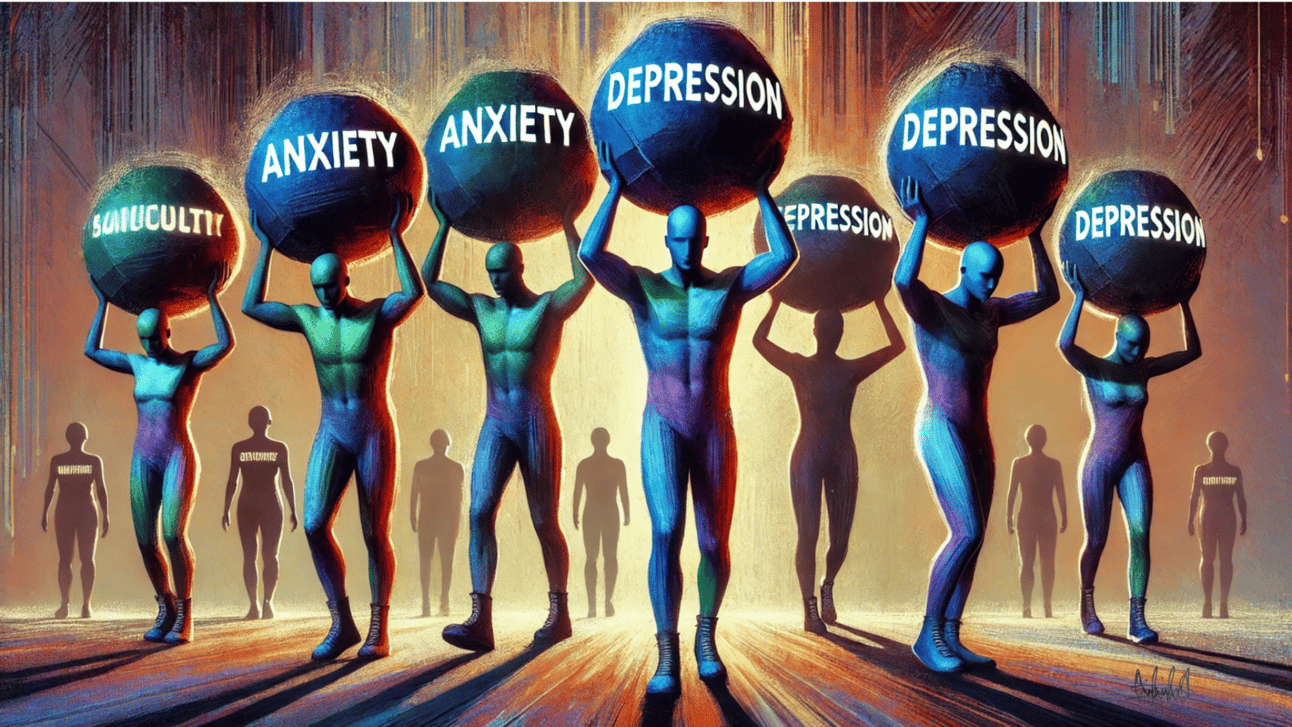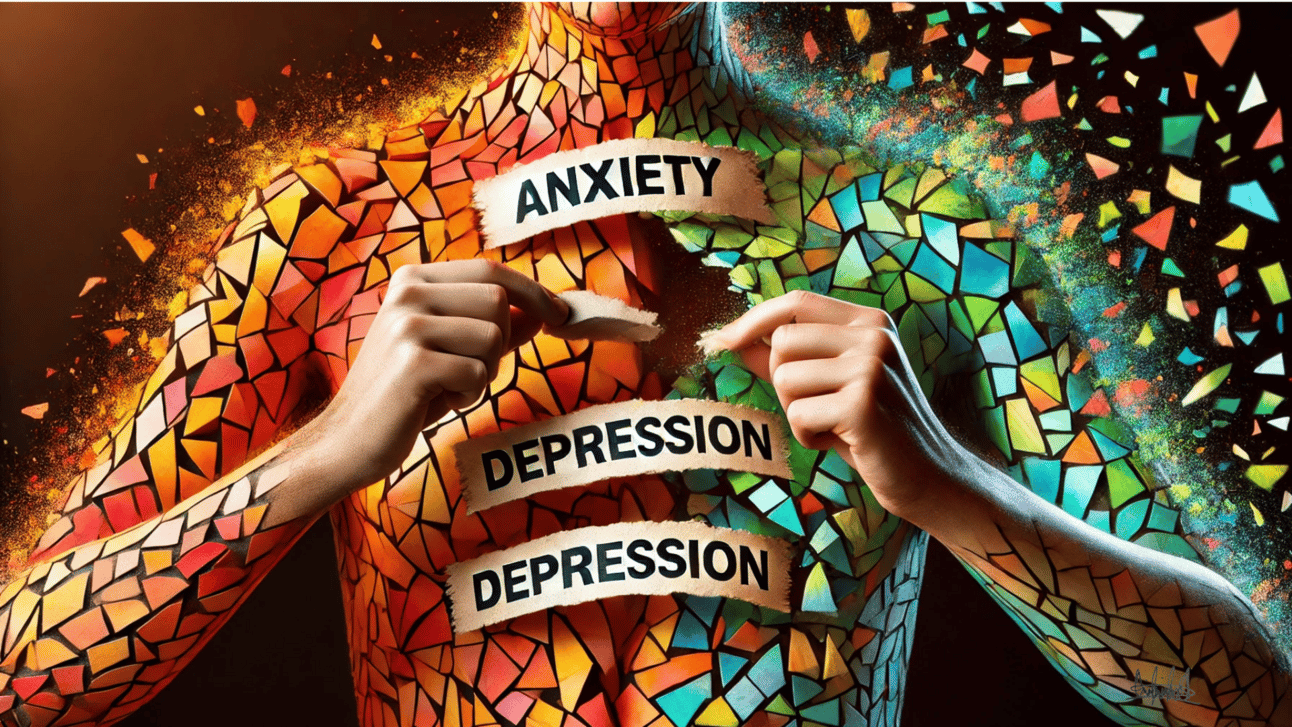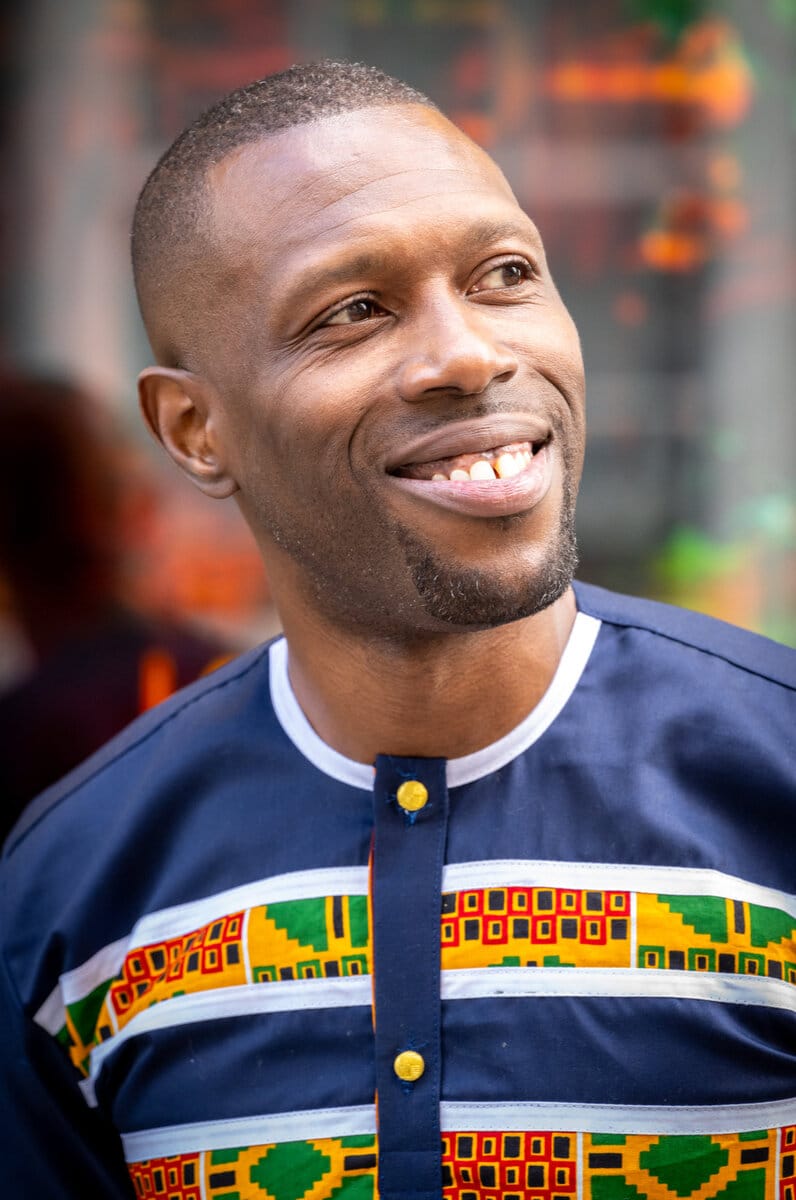
A diverse group of silhouetted figures in a dark landscape, each with open mouths in silent screams, as vibrant light rays penetrate the scene from behind.
In the symphony of society, some voices are barely whispers, their stories untold, their struggles invisible. These are the voices of the marginalised—people pushed to the edges of society by structural inequities, their lived realities often misunderstood or ignored. For too long, the mental health impact of marginalisation has been a silent crisis, largely unaddressed by systems that fail to meet these communities’ unique needs.
Through Intersectional Cultural Consciousness™ (ICC™), we can amplify these silenced voices, fostering a culturally attuned approach that acknowledges exclusion's more profound psychological effects. Marginalisation, whether due to race, gender, sexual orientation, socioeconomic status, or disability, acts as a chronic stressor that deeply impacts mental well-being. The current mental health system often reduces individuals to a label, inadvertently compounding their struggles rather than alleviating them. ICC™ offers a pathway to culturally competent care, recognising the whole person behind each story.
🌍 Empower Your Journey: Begin with 30% Off Your First Month 🌍
Imagine feeling fully seen and heard. Start your ICC™ journey now and unlock culturally conscious support tailored to you. Claim your 30% discount and take the first step towards meaningful mental wellness.
The Psychological Toll of Invisibility

A solitary figure stands in a maze of dark, blurred walls, their shadow revealing faint faces as a soft light touches their face.
The mental health impact of marginalisation is evident in the disparities seen within the UK’s mental health care. Marginalised communities—particularly Black, Asian, and minority ethnic (BAME) groups—face structural barriers to care access. Research shows that inadequate cultural competence within mental health services discourages engagement, exacerbating existing inequalities (Liu et al., 2023). While specific mental health interventions for BAME groups show promise, robust evidence is lacking, highlighting an urgent need for a culturally responsive framework (Baskin et al., 2020).
The experience of marginalisation often feels like navigating a maze, where structural policies, resource limitations, and institutional biases create obstacles. For people like Marie, a young Black woman struggling with PTSD from community violence, traditional therapy focused on “exposure therapy” without recognising the cultural trauma underlying her condition. With ICC™, she was finally able to unpack the layers of generational and community trauma that therapy alone had previously missed, enabling her to address her PTSD from a culturally conscious lens.
The Heavy Toll of Unseen Struggles

Diverse figures stand with weights labelled "anxiety" and "depression" around their ankles, glowing faintly against a dark background.
Imagine a world that questions your identity, dismisses your voice, and disregards your experiences. For many marginalised individuals, this is a reality with profound mental health repercussions, such as:
Increased Anxiety and Depression: Chronic exposure to discrimination and social exclusion can lead to pervasive feelings of anxiety and depression, often accompanied by a sense of helplessness that diminishes hope for change.
Trauma and PTSD: Encounters with systemic prejudice, violence, and discrimination lead to trauma that manifests as PTSD, impacting one’s capacity to trust and engage with society.
Erosion of Self-Worth: Societal messages of inferiority can erode self-esteem, resulting in self-doubt that hampers healthy relationships and personal growth.
Coping Mechanisms and Substance Abuse: Marginalisation often drives individuals to seek relief through temporary escapes, leading to substance abuse that ultimately intensifies their struggles.
For someone like Ravi, a young Asian man dealing with depression, the healthcare system repeatedly failed to address his cultural struggles with familial expectations and societal discrimination. His symptoms were treated as individual problems rather than reflections of a larger context of cultural displacement. Working within the ICC™ framework, however, he confronted these systemic and cultural factors, empowering him to heal beyond the constraints of his initial diagnosis.
Stay up-to-date with AI
The Rundown is the most trusted AI newsletter in the world, with 1,000,000+ readers and exclusive interviews with AI leaders like Mark Zuckerberg, Demis Hassibis, Mustafa Suleyman, and more.
Their expert research team spends all day learning what’s new in AI and talking with industry experts, then distills the most important developments into one free email every morning.
Plus, complete the quiz after signing up and they’ll recommend the best AI tools, guides, and courses – tailored to your needs.
The Intersectionality of Oppression

A prism emits multicoloured rays representing overlapping identities, forming a complex light web.
Identity is a complex web of race, gender, sexual orientation, and other intersecting characteristics, which together shape how individuals experience mental health. Research demonstrates that individuals with multiple marginalised identities—such as Black LGBTQ+ individuals—often face compounded discrimination and societal prejudice, leading to heightened mental health challenges (Codjoe et al., 2019). However, the standard approach within mental health services often overlooks the unique pressures these identities exert.
W.E.B. Du Bois’ concept of “double consciousness” aptly captures the experience of viewing oneself through both personal and societal lenses, which is particularly relevant for those in marginalised communities. This “double consciousness” adds layers of emotional labour to their lives, forcing them to navigate multiple realities. Addressing this requires a tailored approach that goes beyond labels to honour the complexity of each individual’s experience.
🎉 Limited Offer: Embrace Culturally Conscious Care with 30% Off 🎉
Transform your approach to mental well-being. With ICC™, experience a supportive space that values every part of your story. Join now for 30% off your first month—empower yourself and elevate your journey.
Breaking the Silence: Moving Beyond Labels

A person removes labels like "anxiety" and "depression" from their body, revealing vibrant, mosaic-like skin beneath as the labels crumble.
Mental health care too often relies on reductive labels like “anxiety” and “depression.” These terms provide a convenient shorthand for symptoms but fail to capture the multifaceted experiences of the individuals they’re meant to describe. Imagine defining someone’s mental health with a single word. It fails to address the layers that make up their identity, culture, and history.
Consider Ama, a Black woman diagnosed with generalised anxiety disorder. Standard treatments addressed her symptoms but overlooked the racial trauma and microaggressions at the heart of her distress. Working with an ICC™-trained therapist allowed Ama to explore how societal and cultural experiences contributed to her mental health, enabling her to reclaim her narrative beyond the confines of her diagnosis.
There’s a reason 400,000 professionals read this daily.
Join The AI Report, trusted by 400,000+ professionals at Google, Microsoft, and OpenAI. Get daily insights, tools, and strategies to master practical AI skills that drive results.
ICC™: A Framework for Real Transformation

Diverse figures hold fragments of a glowing web, with symbols of cultural heritage surrounding them in a warm, inclusive circle.
Intersectional Cultural Consciousness™ (ICC™) is more than an alternative—a paradigm shift honouring the full spectrum of identities and experiences. Unlike traditional approaches, ICC™ is committed to:
Cultural Competence: ICC™ practitioners understand diverse cultural backgrounds and histories, creating an environment where individuals feel safe and seen.
Intersectional Understanding: Recognising that identities overlap, ICC™ provides nuanced care tailored to complex, overlapping experiences of discrimination and identity.
Community-Centred Healing: ICC™ integrates community support to reinforce individual resilience, creating healing networks that strengthen mental well-being.
With ICC™, care goes beyond treating symptoms; it fosters personal agency and community connection by recognising the multifaceted experiences that impact each person’s journey. Research supports the benefits of community-informed mental health initiatives, particularly among minority populations, as demonstrated in studies on culturally sensitive frameworks like ICC™ (Thomas et al., 2020). This approach honours each individual's identity and heritage, enabling personally and collectively transformative healing.
This article highlights the urgent need for a more inclusive mental health system, and ICC™ stands as a robust response, combining personal experiences, research, and community insights to drive meaningful change. By advocating for a model that values cultural consciousness and intersectionality, we have the potential to redefine mental health care, making it equitable, personalised, and profoundly empowering. This journey toward understanding and healing has the potential to impact the lives of marginalised individuals and communities alike profoundly.
Amplifying Marginalised Voices: A Call to Action

A person speaks into a microphone as faint shadows around them grow bolder, representing empowered voices.
The voices of marginalised communities can no longer go unheard. As I write in White Talking Therapy Can’t Think in Black, “The mental health system is deeply flawed because it is built on a foundation that ignores cultural context, systemic racism, and lived experience.” The ICC™ framework was developed to amplify, validate, and support the identities it serves, resisting the reductive systems of conventional mental health care.
With ICC™, individuals are invited to explore and affirm their unique narratives, moving from the “silent scream” of marginalisation to empowered self-actualisation. ICC™ offers a supportive and liberating approach to mental health that validates the entire human experience and resists the confines of a one-size-fits-all approach.
In my journey as a Black, gay, neurodivergent man, I have seen firsthand the resilience required to navigate life at the intersection of multiple identities. Healing becomes transformative when our whole selves are validated. The ICC™ framework goes beyond labels, equipping individuals to navigate complexities and reclaim their unique resilience.
The Future of Mental Health: Where Healing Meets Inclusivity

A futuristic cityscape with transparent buildings labelled "inclusion" and "healing," where interconnected lights link freely moving figures.
We have the tools to shape mental health care into an inclusive space that amplifies, rather than silences, diverse voices. As Dr. Lisa Coleman said, “Belonging unlocks innovation.” When mental health care is intersectional and culturally conscious, it improves individual lives and transforms entire communities.
ICC™ is a critical step in evolving mental health, bridging cultural gaps and building resilient communities. We need mental health frameworks that listen to these “silent screams,” honour them and empower each voice. Let’s dismantle barriers, challenge labels, and shape a mental health landscape where everyone has the space to be genuinely heard.
Jarell Bempong is an award-winning mental health innovator, best-selling author, and founder of Bempong Talking Therapy. With a unique background as a Black, gay, neurodivergent English-Ghanaian man, Jarell champions an inclusive approach to mental well-being through his Intersectional Cultural Consciousness™ (ICC™) framework. A finalist for multiple industry awards, he advocates for systemic change in mental health care by integrating AI-augmented therapy and culturally conscious practices, inspiring individuals and organisations to embrace a more equitable, personalised approach to mental health.




